Views of Providence and Prayer
by Bruce Daugherty
Surrendered to God in prayer and humbly waiting in faith for God to provide, James A. Harding lived a “life of trust.”
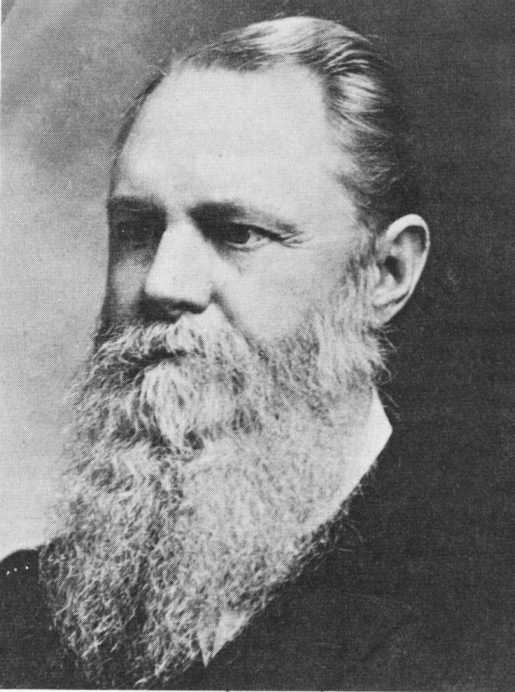
I believe that God loves his faithful children with a very great love. I believe he is very near to them, knows their needs perfectly, and that he can supply their wants at any time, anywhere, under any circumstances. (Harding, 14)
But L. S. White looked differently on providence:
Here is the issue between us, fairly stated. I believe Christians must use God’s appointed means in order to come into possession of the good temporal things of this life, just as I believe that sinners must use God’s appointed means of coming into possession of salvation in order to be saved. (White, 12).

L. S. White
While no one, perhaps, was as committed to prayer and God’s providence as Harding, to what degree did the six Leader editors and writers live the life of trust? This article will seek to answer that question as it looks at how the six understood providence, how they conceived of the purpose and scope of prayer, and the way they viewed suffering in the will of God. Specific references to Harding on God’s care or “Harding’s theory” will also be noted.
T. Q. Martin was one who believed in the life of trust. He accepted the fact that God had provided laws of nature for man to live in accord with, but he also “never doubted” that there was still room for the operation of providence. Martin admitted that it was hard to identify specific instances of providence:
I confess that I can not know certainly what occurrences are providential, but I rejoice believing that my Father in heaven is wise, good and powerful, and that he can take care of me always and everywhere. (Martin, Trusting, 9).
Martin confessed that he had learned a lot about providence from his wife who held the principle, “of trusting God for everything to be vital and essential to happiness.” Martin said that he left on many preaching trips, not knowing what financial compensation would be given, and having to leave his wife and babies with very little. But his wife would always tell him: “Go and do your duty. Remember I am at home praying for you. We will come out all right.” Martin’s wife Elizabeth passed away in 1916, but during her last illness she never spoke a word of worry but repeatedly said, “If we trust in God we will come out all right.” Those words sustained Martin in his sorrow and suffering. Martin went on to say that a life of trust did not mean no responsibilities for the Christian. "I do not believe we should be thriftless or idle, and then expect to be blessed and cared for. But I do believe our greatest concern should be to please God, and, trying by his grace to do our duty, we should leave everything to him." (Ibid.).
Flavil Hall was cognizant of Harding’s life of trust and he made reference to Harding when he received $5 in a letter after he had given $1 to a brother in need. “Call it ‘Harding’s theory’ or what not, I felt that if I had done nothing for that afflicted brother I would have received nothin’ in that letter but writin’.” (Hall, 1918, 6).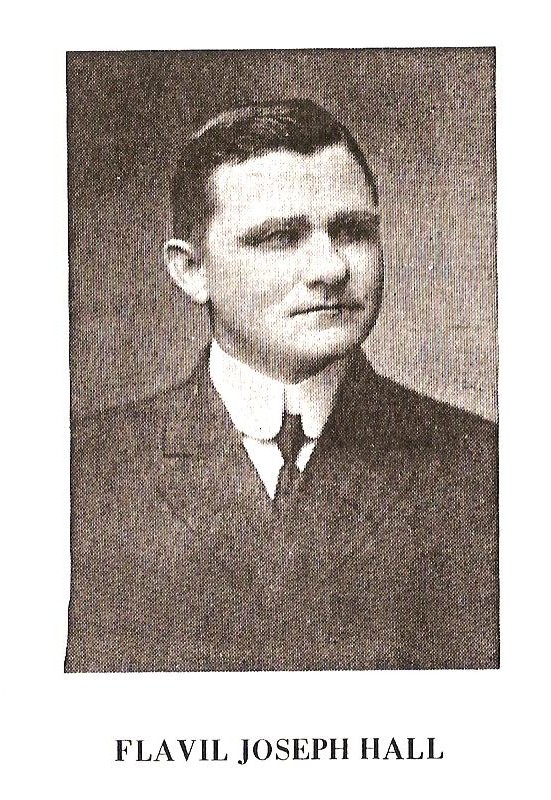

During a period in which Fred Rowe felt the financial burden of the Leader was going to force him to close the paper, Rowe shared with his readers his depression, then elation, when responses came to aid Rowe’s financial straits. Rowe spoke of a letter he had sent to T. Q. Martin in which he poured out his worries. Martin responded with a letter pledging his loyalty and devotion to assist in whatever way he could. Rowe then said, "But Bro. Martin is a poor man - he has no money. What can he do for me? Well listen, Bro. Martin is a man of God." (Rowe, Sorrow, 7). Rowe confessed, “Sometimes in our earthly planning we forget about God. ‘Man proposes but God disposes.’” Along with his promise, Martin sent in 50 cash subscriptions to the paper from individuals in McMinnville, Tennessee. In addition, a check for $200 arrived from a woman in California who “had been wanting to do something for the Leader for a long time.” Rowe concluded, “And when a man of God gets into action, the favor of Almighty God is with him.” (Ibid.).
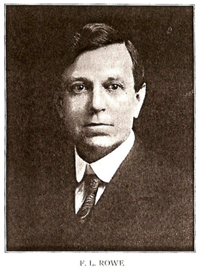
Prayer was the vital link for individuals with a such a high view of providence. It also was a vital ingredient for growth and success in living the Christian life for J. W. Shepherd. When Christians failed in their life and work it could be attributed to a neglect of prayer (Jas. 4:2). The remedy was to “lead a life of prayer.” Shepherd pointed to the examples of David and Daniel as those who had made a habit of prayer (Ps. 55:17; Dan. 6:10). Shepherd spoke of praying while engaged in the day’s activities, like Nehemiah (Neh. 2:5) but he also recommended fixed times of prayer to meet privately with the Father (Mt. 6:6). Shepherd said that prayer was the place for being prepared for spiritual battle: "The reason why so many people fail in battle is because they wait till the battle is on before they think of making preparations for it. The reason why others succeed is because they have gained the victory on their knees long before the battle was on." (Shepherd, Prayer, 9). This was the difference between Jesus’ victory on the cross and the disciples who abandoned him (Lk. 22:40; Mt. 26:56). And Shepherd believed it to be the difference for modern Christians as they faced life’s daily temptations. (Ibid.).
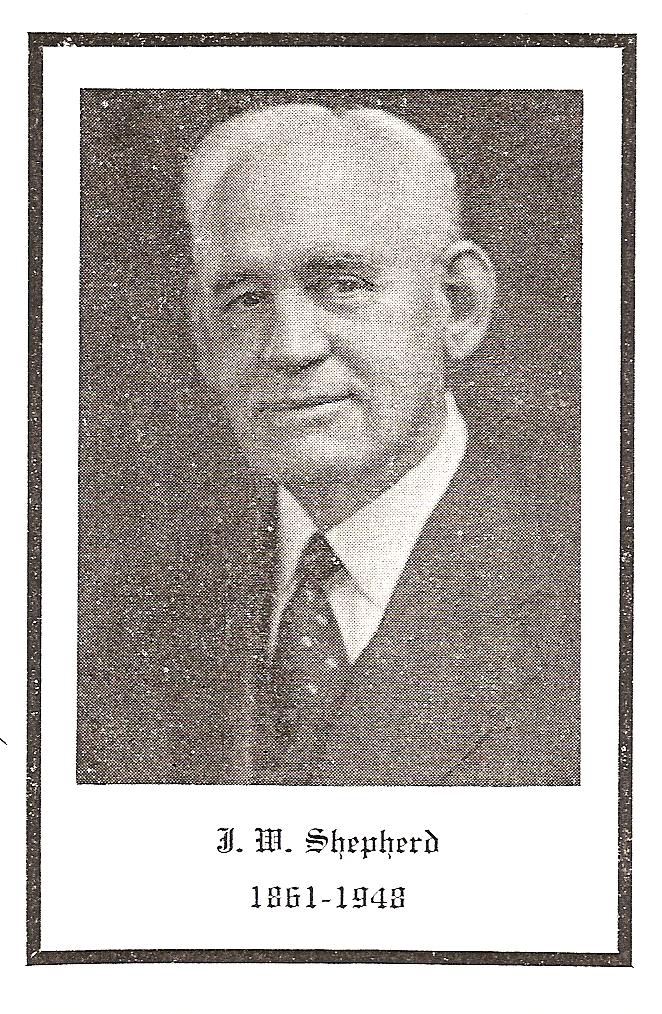
Thad Hutson linked prayer and providence in an article on prayer from Ps. 65:2, “Oh that thou hearest prayer, unto thee shall all flesh come.” For Hutson, God’s instructions, “My servant, Job, shall pray for you, for him will I hear” (Job 42:8), was an encouragement for intercessory prayer. "We can not always tell through what channel many of our providential blessings come to us. Who knows but they may come because of the prayers of the saints. Some have lovingly prayed for us in the long ago, they rest from their labors, but their prayers do follow them." (Hutson, 1924, 1).
T. Q. Martin wrote a series of articles on prayer in 1928 and 1929 in answer to a request from a woman in Texas. In his second article he referred to the things for which to pray. "I believe we should pray for anything that we need. The Bible does not teach that God has promised to give to his children everything that they want. Our wants are many, our real needs are few. I am sure that the way to ruin a child is to give it everything that it wants. Such a child would soon reach the time when it would not appreciate anything. We are all children in a sense, and none of us know what is best for us to have. It is better that we leave this to God." (Martin, Prayer - no.2, 6). This childlike trust in prayer would be answered by the Heavenly Father who would give his children their needs as they requested them (Phil. 4:19; Jn. 15:7).
The bleak situation in national and international affairs in 1937 prompted T. Q. Martin to observe: "We have trusted in men, in the President, in the Senate, the Congress, in schemes of man’s devising and we have gone from bad to worse. The very human legislation that we hope will prove a panacea for our ills, but adds fuel to the flame." (Martin, Help, 5). Though human strength was incapable of deliverance, help was still available, if men would turn to God. Revival was still possible based on God’s promises (Ps. 103:9; 2 Chron. 15:9). But this revival was not to be one of just holding a protracted meeting with a big name preacher who drew big crowds. These meetings often closed with people returning to their old ways of sin. Revival needed to begin with self and the removal from the heart of “anything that is hindering the cause for which Jesus shed his precious blood.” This revival would continue as congregations engaged in prayer. “Real revivals are rooted in prayer.” With voices lifted in unison to “the throne of God” then ". . . every one who preaches should preach, in love, the pure, unadulterated word of God, exalt the Christ, his Godhood as well as his manhood, there is yet hope, and help. But such a revival would be God’s revival, using willing, human instruments." (Ibid.).Martin closed by asking, “Will we let God lead us out of our plight, or will we drift aimlessly on?”
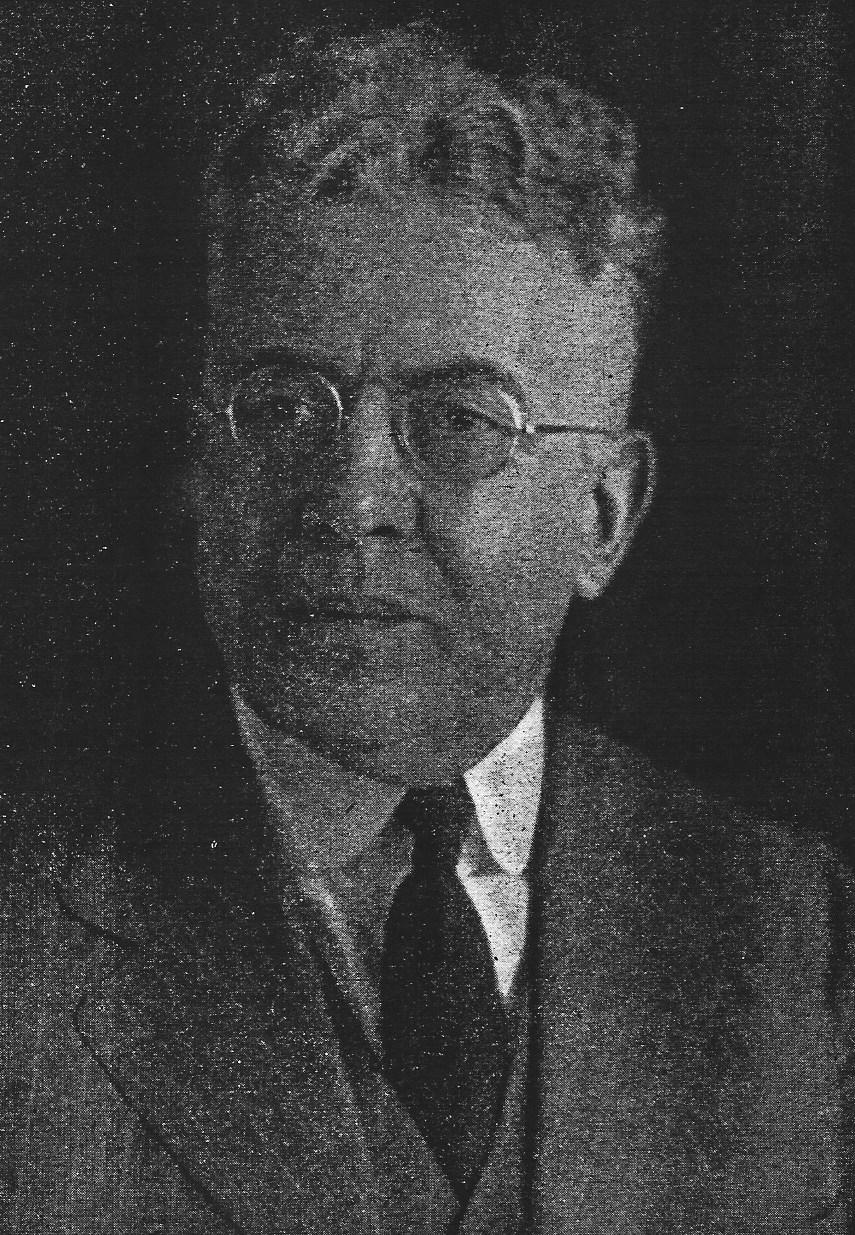
Just a few weeks later, Martin wrote a similar editorial, once again calling for revival by turning to God. Martin was afraid that his call was becoming monotonous to readers, but he was convinced it was the only way of hope as nations drifted ever closer to war. “Be still and know that I am God” (Ps. 46:10) was Martin’s counsel. Christians needed to make confession of sin (Ps. 32:5-6). They could be confident that, “The eyes of Jehovah are toward the righteous, and his ears are open to their cry” (Ps. 34:15). God’s people needed to give themselves to Him in prayer (Ps. 109:4). Martin used the example of Jesus’ sleeping during the storm on the lake (Mk 4:38-39) as an example of what it meant to trust despite the circumstances. "With us on life’s voyage, is God the Father and Jesus Christ the Son. We need not fear. If we fail to enlist others in the great task of purifying the church, and seeking to convert lost souls, we can say, as for me, I will trust and not be afraid. God will take care of his own." (Martin, Be Still, 5).
But trust in God’s care was always severely tested by human suffering, especially when the innocent were suffering. Fred Rowe shared with Leader readers an actual situation that had occurred in Cincinnati. Three innocents, a mother and her two children, had died during the influenza epidemic, while their “worthless, drunken father” had been spared. Rowe posed the question, “Why did God permit the just to die and the unjust to live?” Rowe asked for his readers to “help me explain and understand God’s purpose in thus dealing with the human family.”(Rowe, Observations, 2).
Several responses to Rowe’s question were published. John R. Weathers stated that the “apparent mystery in the Lord’s dealings” . . . “seem hard to reconcile to man’s conception of justice.”(Ibid.). Weathers noted that “God is no respecter of persons,” and then said, “I incline to the belief that such things occur under the operation of fixed physical laws, with which their Author seldom, if ever interferes in this age of the world.” For God to spare the life of some individuals, even innocent, was to necessitate the occurrence of the miraculous and to “anticipate his own righteous judgement.”
J. F. Boyce of West Virginia concurred with Weathers concerning God’s treating everyone the same. The reason why the flu took certain individuals and left others was not out of some sense of Divine justice. It was simply the natural working of disease and the body which God had created. Any sense of offended justice would be met on the day of judgement (2 Thess. 1:7-9). (Ibid.). Another reader from West Virginia wrote: "Grandma says she thinks that drunkard was spared that possibly he may come to repentance. Possibly he proved such a menace to the spirituality of those good people that God removed them before their powers of endurance failed." (Ibid.). From the responses it appears that readers attributed good things to God’s providence but bad things like suffering and death were part of natural occurrences in this world.
Flavil Hall addressed the purpose of afflictions as he directed readers to several passages of Scripture. He spoke of the “chastisements” exercised for “our spiritual good” (Heb. 12:5-11). He also noted Paul’s statements on how grace instructs Christians in Titus 2:11-12. This instruction included reproof, punishment, and chastisement. But it’s fruit would result in sober, righteous and godly living which would have its hope realized when Christ appeared (Tit. 2:13-14). Hall concluded by reminding readers of the momentary nature of their afflictions in contrast to the coming eternal weight of glory (2 Cor. 4:17-18). (Hall, Soulful, 5).
Thad Hutson directed readers to Psalm 77:9-10 for help in reconciling Providence and suffering. The Psalmist was dejected and feeling “forsaken by God.” Because morals were dependent on the will of men, there would always be a mixture of good and evil in this world, even for those who trusted in God. But these injustices did not “exclude God’s providence in human affairs.” Hutson reminded his readers that “all things work together for good to them who love the Lord, to them who are called according to his purpose” (Rom. 8:28). He said, "Even good men in this life need admonitions to awaken their care, some times trials to perfect their “faith.” That martyrs have been allowed to suffer and die for the testimony of God’s truth, is no reflection on the goodness of God." Instead of passing judgement on God or “to censure the methods of his government,” Hutson urged readers to join with the Psalmist and confess, “it is mine own infirmity.” (Hutson, 1926, 1).
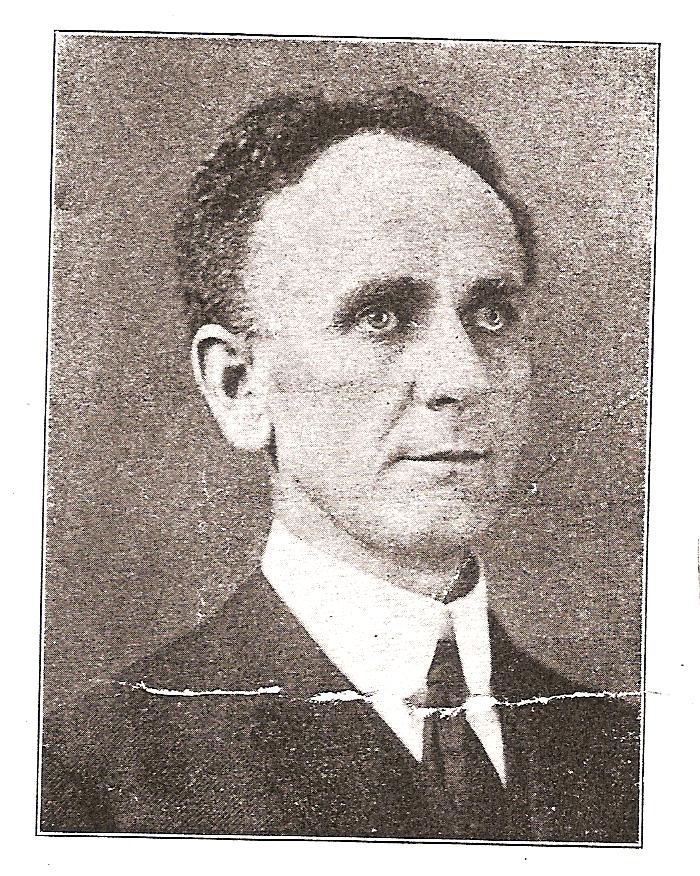
Prayer and faith in the providential workings of God were linked together in the lives of Christians in the period. Faith in God’s providential care was severely tested by the trials of war, disease, and the Depression. The example of Harding’s life of trust was fading, but traces of it could still be seen in the pages of the Leader. Shepherd, Martin and Hall demonstrate a consistent Tennessee tradition on providence and prayer. Thad Hutson joins ranks with them in a departure from his Texas pattern on previous subjects. Ira Moore was silent on the subject. Fred Rowe is difficult to read on this matter. While he expressed his confidence in God, constant worries with the financial burden of the Leader never allowed him to be completely assured.
Works Cited
Hall, Flavil. "Field Notes" Christian Leader 32 (Jan. 15, 1918): 6.
________. "Soulful, Hopeful, and Helpful Thoughts" Christian Leader 40 (Aug. 31, 1926): 5.
Harding, James A. "In Whom Shall We Trust?" Christian Leader and the Way 14 (April 7, 1910): 14.
Harding, James A. and L. S. White, The Harding - White Discussion. Cincinnati: F. L. Rowe, publisher. 1910.
Hutson, Thad. "Considerations" Christian Leader 38 (Apr. 1, 1924): 1.
_________. "Considerations" Christian Leader (Oct. 19, 1926): 1.
Martin, T. Q. "Trusting God" Christian Leader 32 (Jan. 1, 1918): 9.
_________. "Prayer - No. 2" Christian Leader 42 (Dec. 25, 1928): 6.
_________. "Is There Any Help?" Christian Leader 51 (July 20, 1937): 5.
_________. "Be Still and Know That I am God" Christian Leader 41 (Aug. 3, 1937): 5.
Rowe, Fred L. "Sorrow and Sunshine" Christian Leader 48 (Feb. 6, 1934): 7.
_________. "Observations" Christian Leader 33 (May 13, 1919): 2.
Shepherd, J. W. "Prayer a Force in Life" Christian Leader 29 (Jan. 19, 1915): 9.
